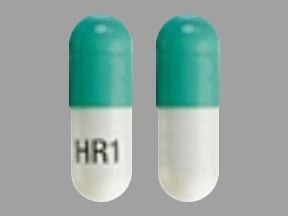
Tecfidera Coupons & Savings Card – Discount Prices from $29.16
Brand for: Dimethyl fumarate
My prescription
Edit
120MG, Dimethyl Fumarate (14 Capsule Delayed Releases)
Select pharmacy

CVS
$1729.86
COUPON PRICE
Walgreens
$29.16
COUPON PRICE
Albertsons
$29.61
COUPON PRICE
Walmart
$1672.79
COUPON PRICETecfidera savings card
Show this card to your pharmacist
Walgreens
$29.16
BIN
ID
PCN
GRP
019876
LHEB5E7428
CHIPPO
LHX
Powered by
Related NRF2 activator prescriptions
More prescriptions for multiple sclerosis
Related NRF2 activator prescriptions
More prescriptions for multiple sclerosis
Tecfidera (Dimethyl Fumarate) dosage forms
Dosage Quantity Price from Per unit 120MG 14 Capsule Delayed Releases $29.58 $2.11 240MG 60 Capsule Delayed Releases $45.55 $0.76 240MG 90 Capsule Delayed Releases $60.83 $0.68 240MG 180 Capsule Delayed Releases $106.66 $0.59
| Dosage | Quantity | Price from | Per unit |
|---|---|---|---|
| 120MG | 14 Capsule Delayed Releases | $29.58 | $2.11 |
| 240MG | 60 Capsule Delayed Releases | $45.55 | $0.76 |
| 240MG | 90 Capsule Delayed Releases | $60.83 | $0.68 |
| 240MG | 180 Capsule Delayed Releases | $106.66 | $0.59 |
What is the drug Tecfidera used for?
Tecfidera is used for the treatment of relapsing forms of multiple sclerosis (MS) in adults. It helps to reduce the frequency of flare-ups and slow the progression of physical disability associated with MS.
Why is Tecfidera being discontinued?
Tecfidera is not being discontinued. There may be confusion due to patent issues or market competition, but the medication continues to be available for patients with multiple sclerosis. If there are specific concerns about availability, it is advisable to consult a healthcare provider or pharmacist for the most current information.
How effective is Tecfidera for MS?
Tecfidera (dimethyl fumarate) is considered an effective treatment for relapsing forms of multiple sclerosis (MS). Clinical trials have shown that it can reduce the frequency of relapses and slow the progression of disability. It also has been shown to decrease the number of new or enlarging brain lesions as seen on MRI. However, the effectiveness can vary among individuals, and it is important for patients to discuss with their healthcare provider to determine if Tecfidera is the right treatment option for their specific condition.
Is Tecfidera an immunosuppressant drug?
Yes, Tecfidera (dimethyl fumarate) is considered to have immunomodulatory effects, which means it can alter the immune system's response. While it is not classified strictly as an immunosuppressant, it does have the ability to reduce the activity of the immune system, which can help in managing multiple sclerosis.
What does dimethyl fumarate do to the body?
Dimethyl fumarate is primarily used to treat multiple sclerosis. It works by modulating the immune system to reduce inflammation and prevent immune cells from attacking the nervous system. This helps decrease the frequency of relapses and slows the progression of physical disability in patients with multiple sclerosis. Additionally, it has antioxidant properties that may protect nerve cells from damage.
